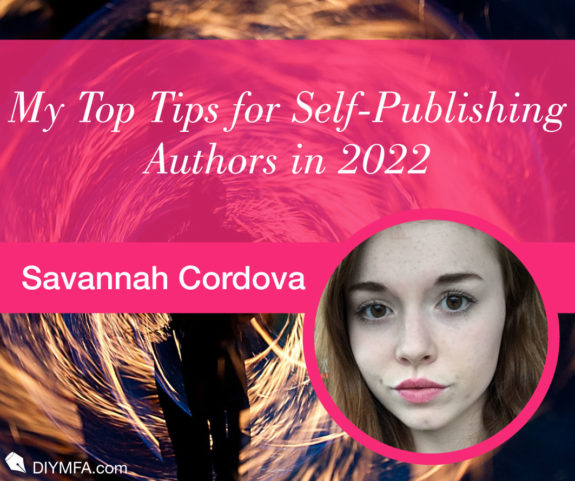Self-publishing might be a grand undertaking for most authors, but that doesn’t mean it has to be a struggle. Though trial and error will always be part of the process, a bit of preparation goes a long way—and if you know your stuff going in, you might even enjoy the ride!
On that note, if there’s anything I’ve learned in my three years at Reedsy and two years of writing for DIY MFA, it’s that we creators thrive when we share resources and support one another. In that same spirit, here are my top tips for self-publishing authors! While they’ll be most helpful for the first-timers, I hope even experienced authors learn a little something new about the self-publishing process.
1. Write the book you believe in
Before you can self-publish a book, you have to actually write it. And though “write to market” is increasingly common (and valid!) advice these days, I still think most authors should start with ideas they really love. Not only will the passion shine through in your prose, but it’ll also motivate you to write all the way to the end—something that marketing potential alone may not do.
A little anecdotal evidence: nearly all the most interesting, fresh-voiced books I’ve come across through Reedsy have been passion projects. Plenty of these titles end up with solid audiences too! But with the exception of nonfiction books serving specific groups (how-to, self-help, etc.), the best books are inspired by the story, not by the people who will buy it.
In short: write the book you truly believe in, and the audience will follow.
2. Invest in your cover design
As I emphasized in my post on cover design mistakes, your cover is a crucial window into your book. Readers use it to judge genre, tone, and ultimately whether or not they should commit to your work; even the tiniest design mistakes can have a devastating impact on this decision.
This is why you must invest in cover design over everything else, whether that means spending sufficient time on your self-design or hiring a professional to make it look flawless. I’d certainly recommend the latter route to most authors: while you can always self-edit your book in a pinch, graphic design skills are simply not in most writers’ wheelhouses. And on top of being artistically gifted, a professional cover designer will be savvy enough to know exactly which design elements readers in your genre want to see.
True, hiring an artist will cost more than doing it yourself. But the time and stress you’ll save in the long run—not to mention the gorgeous cover you’ll get out of the deal!—will be worth it.
3. Start marketing relatively early
I stand by the notion that “writing to market” is not mandatory for success. Once your book is finished, however, you can (and should!) turn your attention to marketing—ideally as you’re editing your book, commissioning your cover design, etc. This will give you a few solid months to attract readers before your book hits the shelves.
Why market so early, you ask? The main reason is reviews: you’ll want to launch with reviews already in place, so your first “real” readers can purchase your book with confidence. In order to get these reviews, you’ll need to send out ARCs to bloggers and reviewers at least a few weeks in advance of your launch. So once your book is in its near-final form (i.e. only awaiting minor copy edits or a proofread), get on those ARCs ASAP.
You may also want to set up a website, start posting more on social media, and create ads if necessary. Needless to say, this work can pile up quickly—so the earlier you start, the better.
4. Make the most of the community
Somewhat paradoxically given the term, one of the best things about self-publishing is the self-publishing community—the authors, readers, and professionals dedicated to the cause and its ever-evolving points of interest. They convene on Twitter, Instagram, Reddit, etc. Wherever you normally spend time online, you should be able to track down the right community for you.
These communities are not only treasure troves of advice and commentary but also of genuine compassion and understanding. Join to connect with authors and readers in your genre, stay for the people that care about authors like you. Yes, it’s always handy to be able to post a reader poll or pick the brain of an experienced editor—but when you’re despairing over writer’s block or Amazon algorithm woes, that’s when your own little self-publishing community bubble feels truly invaluable.
5. Be wary of publishing scams
Not to pull a terrifying one-eighty with this next point, but for all the amazing people you’ll meet online, scammers still sadly abound… and their sociopathic inventiveness and persuasion can hoodwink even the most experienced authors.
The most common scam is when someone (often impersonating a real editor) contacts you, the author, with some fantastic offer—a full publishing package, a contract with a Big 5 imprint, or a deal to turn your book into a screenplay—in exchange for upfront payment. They’ll often call this an “agent fee,” a “signing fee,” etc. to try and make it sound more legitimate.
No matter what they say, though, contacting you out of the blue + requiring payment before providing any services = going to take your money and run.
The good news is that once you’ve heard about the Big Scam, it’s easy to spot: anyone who randomly pops up in your inbox, proffering fame in exchange for money, is bad news.
For future reference, this post and Writer Beware are excellent resources to help you steer clear of publishing scams. When in doubt, you can always Google—where there’s smoke, there’s fire in the world of online scams.
6. Build out your backlist
On a more uplifting note, one of the best things you can do for your self-pub career is the very reason you started it in the first place: to write more books! Building out your backlist is a huge part of long-term marketing, allowing you to usher readers toward more books they’ll be interested in—especially if you’re writing a series about characters they love.
If you’re completely finished with the world of your first book, you can still write something similar. For authors of genre fiction, this shouldn’t be too hard; just start on another sci-fi book, or lit fic novel, or historical romance, as you were probably planning to anyway. For nonfiction authors, it might be tougher. Consider asking your readers what they’d like to learn about next.
Once you have a few books in your backlist, plug them like nobody’s business. Your most recent release should remain your primary focus, but you can still have things like a website banner displaying all your books; social media posts about previous books, especially harking back to fan-favorite bits; updated ebooks with intriguing previews at the end of each; and so on.
7. Remember that success takes time
Coming full-circle, I’ll end on another point that sounds obvious, but is worth reiterating for authors everywhere: quantifiable success takes time. Of course, publishing even a single book is a massive achievement by most people’s standards—but if you’re looking for strong sales, abundant readers, or even consistent critical acclaim, it’s likely going to take a few years.
Whether this statement feels inspiring or discouraging really depends on you as an author. If it currently skews more “discouraging,” try to get some clarity. For example, if you’re after a very specific type of success, ask yourself why. Are you working toward a sustainable career as an author, or is it a matter of ego? Which matters most to you: money, readers, or glowing reviews?
None of these are mutually exclusive, nor is any answer invalid—the idea is to guide you on how to proceed. You might even decide that self-publishing isn’t for you and end up pursuing a traditional publisher instead!
But if you do stick with the self-pub route, take comfort in the fact that you won’t be the only one on the indie grind.
This also seems an apt note on which to end my indie grind, so to speak. As I close out my final column for DIY MFA, my wholehearted wish is that every author reading this—whether green or gold in terms of experience, indie or trad pub in their eventual path—pursues their dreams uninhibited, and gets everything they want out of craft and career alike. Best of luck to you all, and have a wonderful 2022!
Tell us in the comments: Have you ever considered self-publishing your novel? Why or why not?

Savannah Cordova is a writer and content creator at Reedsy, a marketplace that connects authors with the best editors, designers, and marketers in the business. In her spare time, Savannah enjoys reading contemporary fiction and low fantasy, as well as writing the occasional short story. She’s here to pull back the curtain on publishing so that every author can have the greatest possible chance at success.







